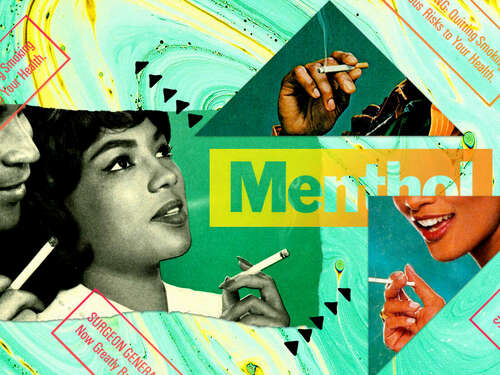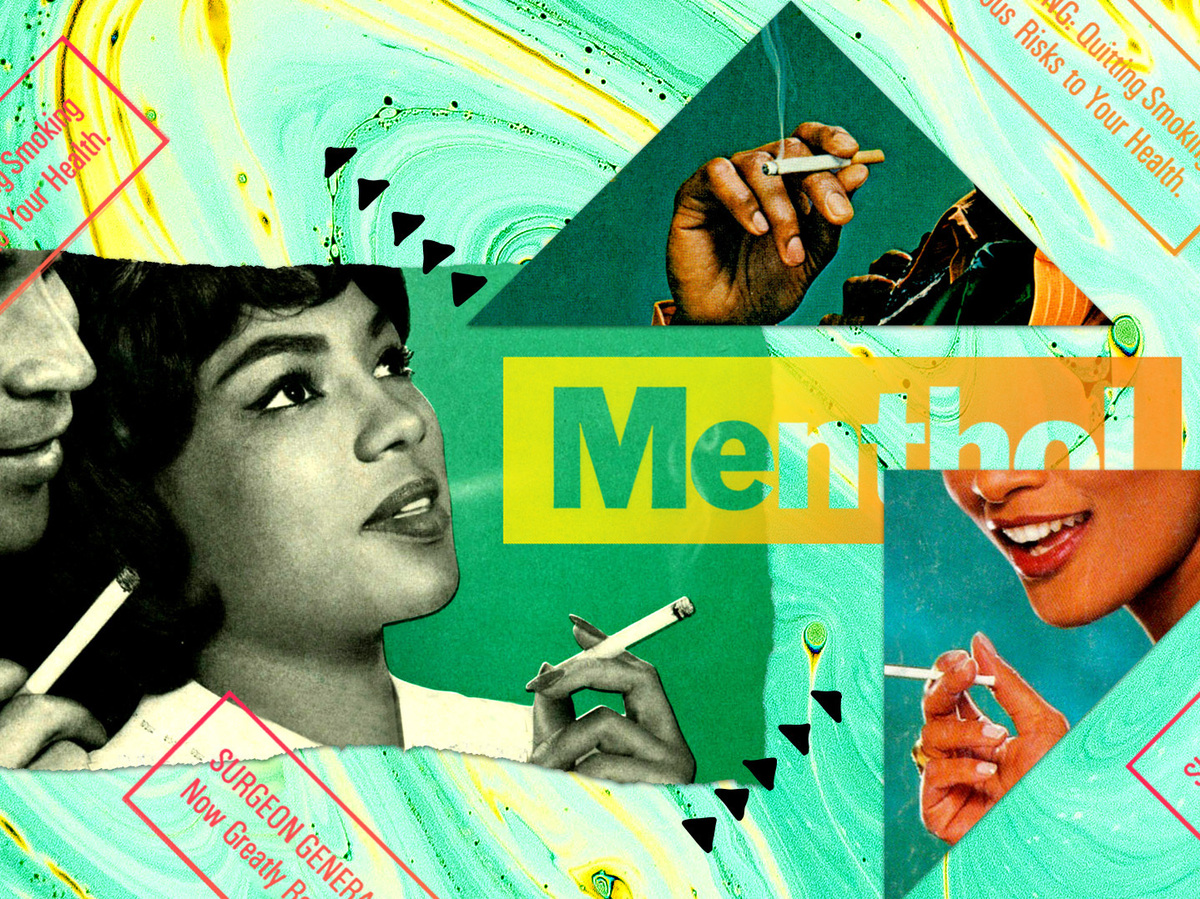
Despite being addictive and deadly, menthol cigarettes were long advertised as a healthy alternative to “regular” cigarettes — and heavily advertised to Black folks in cities.
Jackie Lay/NPR
hide caption
toggle caption
Jackie Lay/NPR

Despite being addictive and deadly, menthol cigarettes were long advertised as a healthy alternative to “regular” cigarettes — and heavily advertised to Black folks in cities.
Jackie Lay/NPR
In the U.S., flavored cigarettes have been banned since 2009, with one glaring exception: menthols. That exception was supposed to go away in 2023, but the Biden administration quietly delayed the ban on menthols. Why? Well, an estimated 85 percent of Black smokers smoke menthols — and some (potentially suspect) polls have indicated that a ban on menthols would chill Biden’s support among Black people. Of course, it’s more complicated than that. The story of menthol cigarettes is tied up in policing, advertising, influencer-culture, and the weaponization of race and gender studies. Oh, and a real-life Black superhero named Mandrake the Magician.
This episode was reported by Gene Demby, produced by Xavier Lopez, and edited by Leah Donnella.



